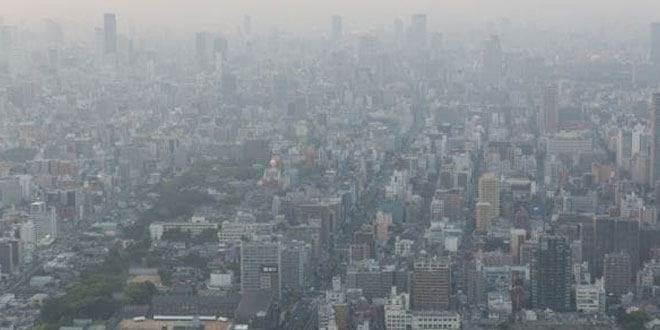Highlights
- Observations from satellite instruments that scan global skies were studied
- Rise is PM2.5 and NO2 reflect increasing vehicle ownership: Study
- Kanpur was ranked by the WHO in 2018 as the most polluted city in the world
London: A UK based study published in the journal Atmospheric Chemistry and Physics, found that hidden air pollutants like fine particles- PM2.5 and nitrogen dioxide (NO2), both hazardous to health, are increasing in Indian cities. According to scientists using observations from instruments on satellites that scan the global skies every day, Kanpur and Delhi are the top cities of India where the air pollutants are spreading rapidly. Researchers used a long record of data gathered by space-based instruments to estimate trends in a range of air pollutants for 2005 to 2018, timed to coincide with well-established air quality policies in the UK and rapid development in India.
Also Read: Vehicle Scrappage Policy: Is India On The Right Track To Ensure Clean Air For All?
The study was led by the University of Birmingham and UCL and included an international team of contributors from Belgium, India, Jamaica and the UK. Delhi is a fast-growing megacity and Kanpur was ranked by the WHO in 2018 as the most polluted city in the world.
The researchers speculated that increases in PM2.5 and NO2 in India reflect increasing vehicle ownership, industrialisation and the limited effect of air pollution policies to date. This contrasts with trends in the UK cities London and Birmingham, which show modest but ongoing declines in PM2.5 and NOx, reflecting the success of policies targeting sources that emit these pollutants.
They also found increases in the air pollutant formaldehyde in Delhi, Kanpur and London. Formaldehyde is a marker for emissions of volatile organic compounds that include a large contribution from vehicle emissions in India, and, in the UK, an increasing contribution from personal care and cleaning products and a range of other household sources.
Karn Vohra, study lead author and PhD student at the University of Birmingham, commented,
We wanted to demonstrate the utility of satellite observations to monitor city-wide air pollution in the UK where ground-based measurements are in abundance and in India where they are not. Our approach will be able to provide useful information about air quality trends in cities with limited surface monitoring capabilities. This is critical as the WHO estimates that outdoor air pollution causes 4.2 million deaths a year.
Study co-author Professor William Bloss, also from the University of Birmingham, commented,
We were surprised to see the increase in formaldehyde above Delhi, Kanpur and London – a clue that emissions of other volatile organic compounds may be changing, potentially driven by economic development and changes in domestic behaviour. Our results emphasise the need to monitor our air for the unexpected, and the importance of ongoing enforcement of measures for cleaner air.
“There is more than a decade of freely available observations from instruments in space to monitor and assess air quality in cities throughout the world. Greater use of these in the UK, India, and beyond is paramount to successful air quality policies”, stated Dr Eloise Marais, Earth observation expert at UCL and conceptual lead of the study.
Also Read: Government Has Taken Number Of Steps To Bring Down Pollution In Delhi: Union Environment Minister
(Except for the headline, this story has not been edited by NDTV staff and is published from a syndicated feed.)
NDTV – Dettol Banega Swasth India campaign is an extension of the five-year-old Banega Swachh India initiative helmed by Campaign Ambassador Amitabh Bachchan. It aims to spread awareness about critical health issues facing the country. In wake of the current COVID-19 pandemic, the need for WASH (Water, Sanitation and Hygiene) is reaffirmed as handwashing is one of the ways to prevent Coronavirus infection and other diseases. The campaign highlights the importance of nutrition and healthcare for women and children to prevent maternal and child mortality, fight malnutrition, stunting, wasting, anaemia and disease prevention through vaccines. Importance of programmes like Public Distribution System (PDS), Mid-day Meal Scheme, POSHAN Abhiyan and the role of Aganwadis and ASHA workers are also covered. Only a Swachh or clean India where toilets are used and open defecation free (ODF) status achieved as part of the Swachh Bharat Abhiyan launched by Prime Minister Narendra Modi in 2014, can eradicate diseases like diahorrea and become a Swasth or healthy India. The campaign will continue to cover issues like air pollution, waste management, plastic ban, manual scavenging and sanitation workers and menstrual hygiene.
[corona_data_new]



























